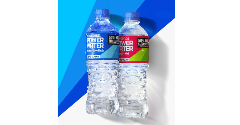News
Plant-based marketing 101: How to create a standout plant-based dairy product
30 Apr 2024Aurore de Monclin from HMT, the marketing firm that helped rebrand Oatly, shares her tips to create a plant-based dairy brand that stands out from the crowd.
New plant-based dairy products are lining supermarket shelves at a dizzying pace around the world, each with their own unique proposition to the consumer. Recent launches promise unparalleled taste and texture, innovative formulations as well as a powerful brand narrative.

However, falling sales and disappointing profits of some plant-based brands reported late last year have prompted some commentators to suggest the category could decline if this downward trend continues. In January 2023, Oatly restructured its business, shifting to a “hybrid” manufacturing model and reducing headcount following weak third-quarter results.
Nevertheless, others, such as Chilean food-tech alternative protein company NotCo, are reporting growth. How, therefore, can manufacturers create an innovative, standout plant-based product that has longevity?
Aurore de Monclin, managing partner and head of consulting at market research company, the Healthy Marketing Team (HMT), shares six key areas for manufacturers to consider when launching a brand-new, plant-based product with learnings for plant-based dairy manufacturers from the entire plant-based category.
Ingredients list: Keep it clean and green
“Creating a simple ingredients list is a challenge for manufacturers but highly desirable for plant-based products,” says de Monclin. US-based startup Daring, for instance, has a line of original plant-based chicken pieces with a short and natural ingredient list. “Consider new ingredients that consumers are currently looking for, as well as those that are more familiar. Consumers are increasingly rejecting overly processed and artificial ingredients. Sourcing an ingredient that can be grown locally is advantageous.”
Category check: Educate to gain trust
“Educating the consumer to gain trust and steer purchasing decisions might be required if you are the first plant-based alternative product in the category,” advises de Monclin. Singapore-based UmamiMeats makes cell-cultured fish, which is not plant-based but a new category that requires trust and education from the consumer. “Creating an entirely new segment and providing a new taste experience offers significant opportunities for manufacturers.”
Consumer insight: Know people’s motivations
Brands should ask themselves key questions to understand consumers’ purchase drivers. “What are your consumer’s purchasing habits? Are they buying plant-based for ethical or health reasons? A vegan activist and a flexitarian mum looking for healthier foods such as plant-based will have different needs,” says de Monclin.
“Spanish plant-based food company Heura is an activist brand; its website tells consumers it wants to be “agents of change”. UK brand Strong Roots, on the other hand, is a home-cooking brand that is convenient for flexitarian mums. Understanding your consumer at a granular level will impact the ingredients used within your new product and how the nutritional benefits and brand narrative are communicated.”
Offer a clear ‘planet-based’ benefit
“Consumers must understand the benefits of your plant-based product,” she says. “Today, food that is contributing to both planetary and human health is essential. It’s no longer enough to just not harm the planet, it must be restored through creating “planet-based” foods and products.”
US snack brand Hippeas dials up the nutritional benefits of chickpeas and is both “plant-based” and planet-based. Be clear about the distinct benefits that can be successfully communicated and will motivate the consumer to purchase. Is your product ethical and nutritious or in an easy to prepare format?
Go for bold branding and careful, compliant naming
“Enticing packaging and positive messages always appeal. Plant-based products should not be perceived as dull or bland to the consumer. Gain trust for your brand or your ingredients by delivering plant-based products that don’t overpromise on taste and texture,” de Monclin told Ingredients Network. “Collaborating with chefs will also help create the right combination of flavour, taste, and texture to deliver ready-to-cook solutions for consumers. UK plant-based brand THIS is grabbing attention with snappy messaging and crisp, monochrome brand colours.”
The question of what to name a plant-based product is extremely important for branding. Consumers need to understand exactly what the product is. However, the argument of whether dairy names can be used for dairy alternatives is a hotly contested issue around the world and has been debated at the Court of Justice of the European Union and in US courts.
Manufacturers must tread a fine line between interpreting the law and finding an informative description for the products that is appealing and sellable. “Fermented soy-based dessert” is not as catchy as soy yoghurt and takes up more space on the packaging.
Nevertheless, brands must navigate this carefully. In a March 2023 newsletter, Tsvetinka Andreeva, associate at legal firm Food Compliance International (FCI), explained that differences in national rulings and the lack of harmonised legislation at an EU level creates uncertainty for companies marketing plant-based alternatives, and that using dairy names required a detailed case-by-case analysis.
Find the perfect price for your product’s positioning
“With global inflation tightening budgets, consumers want good value for money. Is it an affordable product or worth paying a premium for? This question is more relevant today than ever. Articulating a clear benefit can help consumers understand whether the product is worth the price. German retailer Aldi has a plant menu range which offers budget pricing with quality frozen and ready meals and a whole foods approach.”
Related news

Oat Barista: Innovation for game-changing beverages
20 Nov 2025
Oat Barista is a clean label, sustainable, and innovative drink base specifically designed to create the perfect foam in one single ingredient.
Read more
How younger consumers are redefining ingredient choices and rejecting brand loyalty
18 Nov 2025
Gen Z and millennial consumers’ preferences for transparency, functionality, and purpose are “redefining the very nature of consumption itself”, says SPINS.
Read more
Hybrid formats and flexible positioning to disrupt category norms in 2026
17 Nov 2025
Trend forecasters expect food and drink to move more fluidly across occasions, functions, and formats as consumers seek versatility, novelty, and convenience.
Read more
Danone highlights digestive health as potential ‘tipping point’ for food industry
13 Nov 2025
Danone is betting on a food industry “tipping point” that will bloat the market for healthy products, particularly those related to gut health.
Read more
New UPF standard hoped to offer consumers ‘coherence and clarity’
10 Nov 2025
Ingredients companies are being urged to enter “a new era of partnership and innovation” following the launch of the industry’s first non-UPF verification scheme.
Read more
Faravelli at Fi Europe: Showcasing FARA® functional solutions for food and nutra
28 Oct 2025
At Fi Europe 2025 in Paris (stand 72M39), Faravelli showcases FARA® Customized Functional Solutions and a wide ingredient portfolio for food and nutra – delivering quality, innovation, and expertise.
Read more
Agrigum Redefined FIBER
27 Oct 2025
Agrigum has transformed gum acacia into a natural, science-backed fibre that supports gut health, sustainability, and innovation across global food and nutrition applications.
Read more
Expanding boundaries in food & beverage innovation
23 Oct 2025
IMCD and FrieslandCampina Professional expand partnership to deliver Kievit® across EMEA, enabling brands to enhance quality and accelerate time-to-market for tomorrow’s food & beverage creations.
Read more
Amazon Grocery launch aims to balance quality with affordability
22 Oct 2025
Global e-commerce giant Amazon has introduced a new private-label food brand, combining existing Amazon Fresh and Happy Belly products with new everyday items.
Read more
Powerade enters hydration space with launch of Power Water
21 Oct 2025
Coca-Cola’s Powerade brand has launched a zero-sugar, electrolyte-enhanced functional water, marking the brand's entry into the hydration space.
Read more